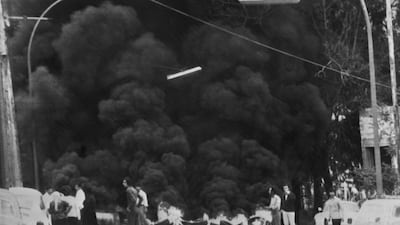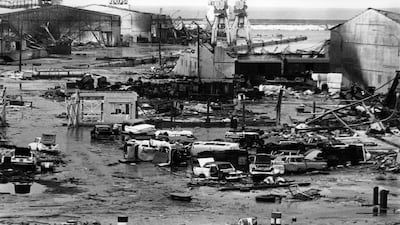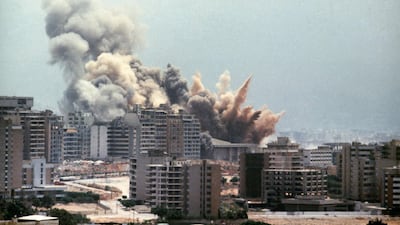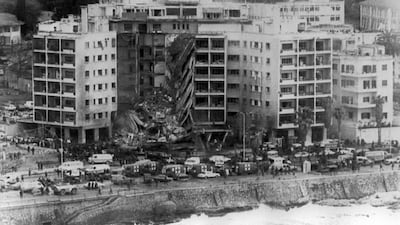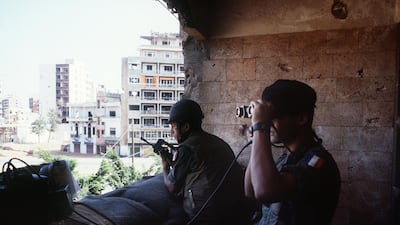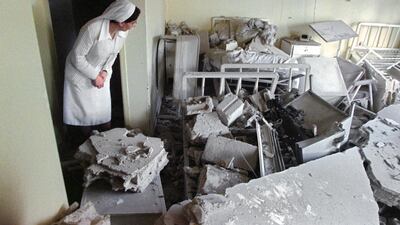MPs in Lebanon have called for Lebanese missing in Syrian jails to be included in the remit of a UN-created body that seeks to establish the fate of the tens of thousands of people who have been forcibly disappeared in the brutal civil war in Syria.
The UN General Assembly this year approved the creation of The Independent Institution on Missing Persons in the Syrian Arab Republic (IIMP), which seeks to establish the situation of about 130,000 who have gone missing since the civil war broke out in 2011.
Human rights groups and MPs say hundreds of Lebanese were disappeared in Syria, largely stemming from the 1975-1990 Lebanese civil war and the Syrian occupation of Lebanon, which ended in 2005.
Family members, rights groups and 46 MPs from Lebanon's 128-seat parliament have launched a petition calling for the case of missing Lebanese – believed to be more than 600 – to be included in the IIMP's agenda.
“It's very important to note that it's not a political statement, it's a purely humanitarian right for the people and for the families to know the whereabouts and fate of their missing [relatives]," Nadim Gemayel, MP for East Beirut and a signatory of the petition, told The National.
When a vote was held this year on a UN resolution to establish the independent institution, Lebanon abstained – a move condemned by many in the country.
The Lebanese Foreign Ministry said it did not want to politicise the issue.
The 46 MPs who signed the petition, which was addressed to UN Secretary General Antonio Guterres, can largely be characterised as being against the current Syrian government and from factions that had opposed Syria's previous occupation of Lebanon.
Syria does have political allies in Lebanon, including the Shiite duo of Hezbollah and the Amal Movement, both of which have numerous MPs in parliament and cabinet ministers from their respective parties. Hezbollah, the powerful Lebanese armed group, has sent fighters to support the government led by President Bashar Al Assad during the civil war in neighbouring Syria.
“We have specific cases, all documented, about 600. Until now, the Syrian regime refused to make clear the facts of this situation,” George Okais, MP for Zahle, told The National.
Asked if the Lebanese government had done enough on the issue of the missing Lebanese, he responded: “Not at all. They are either afraid of the Syrian regime or they are in the same coalition with them.”
Mr Gemayel said “as the representatives of the people of Lebanon, as a member of parliament, since the government is not ready to support this request, we will support it directly. And we are going directly to the United Nations to ask for the inclusion of the Lebanese missing persons into this new institution that has been formed.
“I think it's taken a very long time [to resolve the file of those missing] because the Syrian influence in Lebanon is still remaining. We know that through the presence of Hezbollah, we know it because the allies of Syria are still in the government. Today, since we have a new window that is open through the creation of this independent institution, I think we have a bright window.”
Mr Okais said those who had disappeared were from “different geographical regions, different communities and religions, from different parties. So we are all affected by the Syrian occupation at that time.”
The petition says some previously detained Lebanese “have confirmed upon their return to Lebanon the presence of other Lebanese citizens still remaining in custody inside Syrian jails”.
Syria's presence in Lebanon ended in 2005 after the Cedar Revolution, in which vast rallies were held in protest against the thousands of Syrian soldiers in the country and Damascus's influence on Lebanese affairs. The revolution came after the assassination of Prime Minister Rafik Hariri.
Syria's departure in 2005 led to the return of exiled former army chief Michel Aoun, who had fought and lost against Syria during the Lebanese Civil War. He would eventually be elected president in 2016.
It also led to the release of imprisoned Lebanese Forces leader Samir Geagea. The former militia has now evolved into Lebanon's largest party in parliament and its MPs signed the petition sent to the UN.
